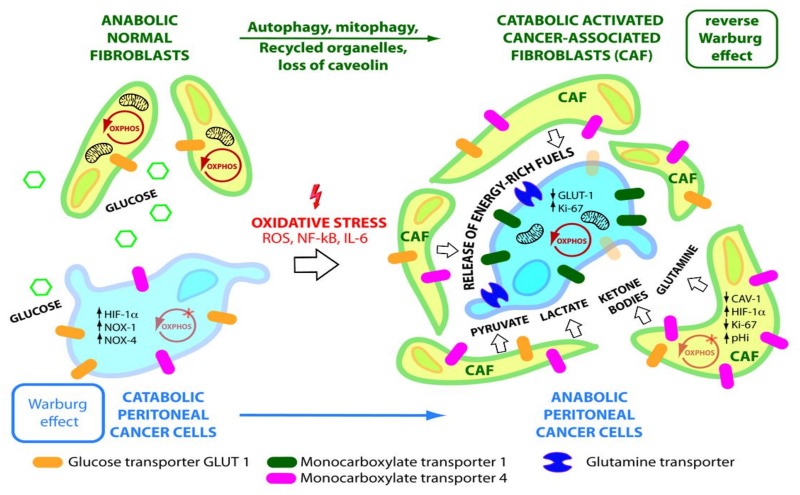Figure 2.
Reverse Warburg Effect. Normal fibroblasts/mesothelial cells are transformed into glycolytic cancer-associated fibroblasts (CAFs) under the influence of hypoxic cancer cells. In the process, fibroblasts lose their mitochondrial function via cytokines, oxidative stress, and mitophagy and come to rely on cytoplasmic glycolysis. CAFs release energy substrates (pyruvate, lactate, ketone bodies, glutamine) into the tumor microenvironment (TME) via autophagy and MCT4. These are taken up by MCT1 and glutamine transporters in anabolic cancer cells to maintain OXPHOS and mitochondrial ATP production (adapted from [33,34]).

